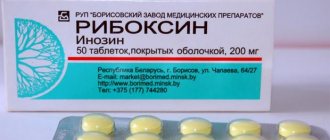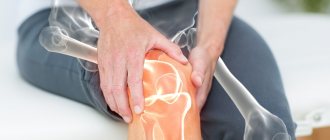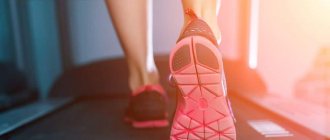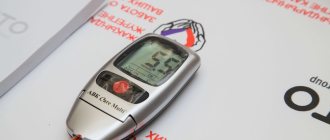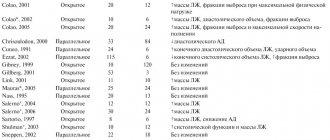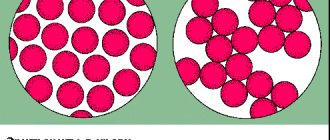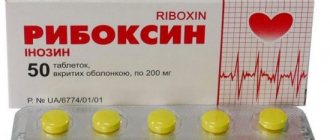To activate and normalize metabolic processes in the heart muscle, as well as eliminate tissue hypoxia, Riboxin is prescribed.
To achieve the desired effect when using the drug, it is necessary to familiarize yourself in detail not only with the indications, but also with the side effects of Riboxin.
The drug is available in the form:
- red hard gelatin capsules with white powder inside;
- two types of tablets;
- solution for intravenous injection.
The main ingredient of Riboxin is inosine, a nucleoside, a chemical precursor of adenosine triphosphoric acid (ATP), which is a universal source of energy for all biochemical processes in the body.
Penetrating into the cell, the active component helps to increase their energy balance and stimulates the synthesis of nucleoside phosphates.
Riboxin is produced by numerous pharmaceutical enterprises in the post-Soviet space
Riboxin has the following effects:
- Anabolic. Promotes the formation and regeneration of damaged cardiac muscle tissue, as well as the gastrointestinal tract.
- Activates the Krebs cycle, which leads to improved respiration at the cellular level.
- Accelerates microcirculation of biological fluids. It enhances capillary circulation and the transportation of blood and lymph, as a result of which the area of necrotic changes in the myocardium during infarctions becomes smaller, and the risk of developing coronary artery disease is significantly reduced.
- Is a participant in energy exchange. The active component of Riboxin affects the metabolism and utilization of glucose - the main source of energy, which ensures the normal passage of any processes in the body.
- Improves metabolic processes when there is a lack of oxygen in tissues or individual organs.
The drug has the greatest effect on the myocardium and liver. Activation of metabolic processes in organs leads to:
- increasing cell resistance to hypoxia;
- restoration of normal conduction of electrical impulses, resulting in normalization of heart rhythm;
- improving blood supply to the kidneys and heart muscle, as well as tissue respiration;
- reducing the risk of blood clots;
- decreased platelet aggregation;
- increased myocardial contractility;
- improving the recovery ability of the myocardium after heart attacks;
- prevention of chronic cardiovascular failure and thromboembolism;
- restoration of the liver in case of pathological changes;
- better regeneration of stomach tissue with erosive and ulcerative lesions.
Riboxin is not a drug with a pronounced effect, but its use together with other drugs significantly improves the patient’s condition.
Riboxin is used in conjunction with other drugs to combat:
Cardiovascular pathologies:
- cardiac ischemia;
- heart rhythm disturbances;
- intoxication caused by the use of cardiac glycosides;
- cardiomyopathies;
- consequences of myocardial infarction;
- angina pectoris;
- myocarditis caused by physical overload;
- congenital and acquired heart defects.
Pathological changes in the liver:
- hepatitis;
- fatty degeneration caused by excessive alcohol consumption or medications;
- cirrhosis.
Urocoproporphyria.
Open-angle glaucoma with normal intraocular pressure by normalizing vision.
Ulcerative lesions of the stomach and duodenum.
Radiation burns. The drug promotes their speedy healing and prevents a decrease in the number of leukocytes in the blood.
Riboxin gets good reviews from people involved in sports, especially strength sports.
A non-steroidal anabolic drug is taken by athletes together with steroids mainly during bodybuilding and powerlifting and leads to:
- increasing the elasticity of vascular walls;
- maintaining the level and capacity of hemoglobin;
- normalization of insulin synthesis;
- maintaining the heart muscle;
- stimulation of carbohydrate absorption.
The use of the drug does not affect the growth of strength indicators and muscle mass. But it restores carbohydrate, protein and fat metabolism, leads to an increase in the body’s protective properties and an increase in the effectiveness of training.
What is Riboxin
A drug based on inosine, a precursor of adenosine triphosphate. Regulates blood circulation, absorption of glucose by cells, restores nutrition to the myocardium. Several pharmaceutical forms of Riboxin are produced:
- tablets: yellow, coated, contain 200 mg of active substance, packaged in cell blisters, packed in 10–50 pcs.;
- Riboxin Lect: soft gelatin capsules containing 200 mg of inosine, up to 50 pcs. in one package;
- 2% solution for parenteral administration: a clear, water-based liquid in ampoules of 5–10 ml, used for injection.
Oral medications contain starch, gelatin, sucrose, glycerin and other formative substances.
Side effects
In rare cases, Riboxin leads to side effects that manifest themselves:
- allergic reactions in the form of skin rashes, hyperemia, itching;
- decreased blood pressure;
- increased concentration of uric acid in the body;
- rapid heartbeat;
- exacerbation of gouty arthritis;
- rapid heartbeat;
- dizziness and persistent headache;
- increased sweating;
- anaphylactic shock.
If side effects occur, you must stop using the drug
When administering the drug by injection, local reactions such as redness and itching at the injection site cannot be excluded.
To avoid side effects of Riboxin, its use should be agreed with your doctor.
How does Riboxin work?
Inosine in all types of the drug has systemic effectiveness. It restores metabolism, helps the body adapt to work in conditions of insufficient oxygen supply. The medicine eliminates and prevents the occurrence of arrhythmia in chronic vascular diseases. Regular use helps normalize myocardial contractility and reduce ischemic disorders.
The therapeutic effect increases with the course of taking the drug. In the blood, inosine actively stimulates tissue metabolism, ATP production, smoothes out the manifestations of bradycardia, tachycardia, increases the force of contraction of the heart muscle and promotes better relaxation.
Riboxin has a moderate antiplatelet effect: it improves blood fluidity and prevents platelet aggregation. Another therapeutic effect of the drug is biostimulating. The medicine accelerates the regeneration of muscle fiber cells and mucous membranes.
Other substitutes
There are also medicines that contain active components different from Riboxin, but have the same functional orientation. Some of them belong to the new generation of drugs and have a much better effect.
Mildronate
The drug is produced on the basis of meldonium, which gives the drug angioprotective, anginal, antihypoxic and cardioprotective effects. Intended for:
- normalization of metabolism in cells;
- improving blood microcirculation;
- slowing down necrotic processes;
- reducing the recovery period after surgery;
- improving the contractility of the heart muscle;
- increasing the body's defenses;
- increasing endurance during physical and mental stress;
- treatment of certain eye diseases.
Mildronate is a Latvian drug intended for oral, intramuscular, intravenous and parabulbar administration.
Taking Mildronate may cause:
- manifestations of allergies;
- dyspeptic symptoms (belching, nausea, vomiting, heartburn);
- tachycardia;
- increased arousal;
- lowering blood pressure.
Contraindications to the use of the drug include individual intolerance to its components and intracranial hypertension.
Unlike Riboxin, Mildronate does not participate in the production of any substances in the body; with its help, metabolic processes are only corrected.
Cavinton
It is produced on the basis of vinpocetine with the addition of excipients.
Cavinton is a Hungarian drug produced in the form of tablets and injection solution.
Cavinton has a positive effect on metabolic processes in the brain. Recommended for:
- transistor ischemia;
- ischemic stroke;
- atherosclerosis;
- post-traumatic or hypertensive encephalopathy;
- neurological and mental disorders (memory disorders, headaches, movement disorders), etc.
Side effects appear as:
- lowering blood pressure;
- dyspeptic disorders;
- headaches;
- dizziness;
- feelings of weakness;
- allergies.
The drug is contraindicated in severe forms of arrhythmia expressed by coronary heart disease, during pregnancy and breastfeeding.
Cytoflavin
The drug is produced on the basis of:
- succinic acid, which is involved in the synthesis of ATP and has a direct effect on glycolysis, which improves cellular metabolism;
- inosine – the main ingredient of Riboxin;
- Riboflavin (vitamin B2), which is a direct participant in the Krebs cycle, is of particular importance for the body and acts as an antioxidant;
- nicotinamide, which helps improve cellular respiration and ATP synthesis.
Cytoflavin – Russian medicine, dosage form – tablets and injection solution
The advisability of prescribing Cytoflavin arises when:
- impaired cerebral circulation (after a stroke);
- prolonged mental or physical stress;
- insufficient blood supply to the brain in a newborn baby;
- use of artificial circulation in the postoperative period;
- cerebral atherosclerosis.
The drug is not used in case of allergy to its components, in case of kidney disease and in patients under 18 years of age.
In rare cases, the use of Cytoflavin can provoke headaches, tachycardia, arrhythmia, nausea, vomiting, allergies and other unpleasant symptoms.
Mexicor
The drug contains hydroxymethylethylpyridine succinate as the main component.
Mexicor is produced in the form of capsules and injection solution by the Russian enterprise EcoPharmInvest
Thanks to its antihypoxic, neuroprotective, nootropic, anxiolytic and antioxidant effects, Mexicor, together with other treatment methods, eliminates:
- cardiac ischemia;
- ischemic stroke;
- mild to moderate cognitive impairment;
- dyscirculatory encephalopathy.
Mexicor injections are recommended for myocardial infarction.
The use of the drug is prohibited when:
- liver and kidney pathologies in the acute stage;
- hypersensitivity to the components of the product.
Pregnant and lactating women, as well as patients under 18 years of age, are not recommended to use the drug due to the lack of data on its effect on their body and the health of the child.
Actovegin
It is produced on the basis of deproteinized hemoderivative from calf blood, which helps to activate metabolic and regenerative processes and improve trophism. The use of the drug leads to an increase in tissue resistance to oxygen deficiency and activation of energy metabolism.
Actovegin is produced by the Austrian drug manufacturer Nycomed Austria GmbH in the form of a solution for injection and infusion, tablets, cream, gel and ointment.
Actovegin, together with other drugs, fights against:
- vascular and metabolic disorders in the brain (ischemic stroke, dementia, etc.);
- diabetic polyneuropathy;
- arterial and venous disorders and their consequences (trophic ulcers, angiopathy).
Unlike drugs similar in effect to Riboxin, there are dosage forms of Actovegin that have a local therapeutic effect (gels and ointments) and are intended for the treatment of inflammatory processes on the skin and mucous membranes (burns, abrasions, cuts, cracks, etc.).
The use of Actovegino is contraindicated in:
- oliguria;
- pulmonary edema;
- anuria;
- individual intolerance;
- decompensated heart failure (if necessary, IVs).
Therapy with Actovegin can lead to:
- allergic manifestations (swelling, increased sweating, etc.)
- dyspeptic disorders (vomiting, nausea, diarrhea);
- ticcardia, heart pain, pallor of the skin, shortness of breath;
- feeling of weakness, headaches, dizziness, tremor;
- rapid breathing.
Undesirable manifestations occur very rarely and are eliminated with symptomatic treatment.
If it is necessary or desirable to replace Riboxin with its analogue, it is necessary to consult with the attending physician, who will select the most effective and safe remedy for the patient’s health.
For what diseases is Riboxin used?
The main area of medicine in which the drug is in demand is cardiology. Riboxin is prescribed:
- for coronary insufficiency, angina pectoris, and other manifestations of cardiac ischemia;
- to relieve disorders in patients after a heart attack;
- in case of intoxication with cardiac glycosides;
- for cardiac arrhythmias of various origins;
- with dystrophic changes in the myocardium due to physical exhaustion, endocrine pathologies.
In the complex treatment of diseases of internal organs, Riboxin is used due to its regenerating and metabolic effects. Main indications:
- liver damage: hepatosis, hepatitis, cirrhosis;
- gastric ulcer, erosive changes in the intestinal mucosa;
- open-angle glaucoma with stable intraocular pressure;
- pathological conditions after radiation and chemotherapy.
Reviews
Alexey Mikhailovich Muranov, cardiologist (Kharkov) Modern medicine has at its disposal more effective means than Riboxin. The medicine is quite popular, has a low price and rarely occurs minor side effects, there are also few contraindications. Prescribed when no serious illness has been identified, often for the placebo effect.
Anatoly Vasilyevich Smirnov, Omsk, 60 years old Since childhood, he has been involved in weightlifting at a professional level. Coaches, with the permission of doctors, always prescribed Riboxin not only to me, but also to other athletes. It was believed that the drug greatly increases endurance. Personally, with constant training, I never noticed a clear effect from the medicine, but there were no side effects.
Svetlana, Belgorod, 48 years old A neighbor advised me to take Riboxin to support my heart activity. The medicine is popular, cheap, and accessible. Of course, I didn’t consult a doctor. I took one tablet three times a day before meals for a week. Then pale pink rashes appeared on the skin, which were very itchy. Doctors diagnosed a nettle rash, which was a side effect of the medication. As soon as I stopped taking it, the rash went away.
Is Riboxin allowed for pregnant women?
Expectant mothers need more nutrients, the absorption of which is questionable due to hypoxic disorders. In this situation, Riboxin improves metabolism, ensures better energy exchange, eliminates the effects of oxygen starvation, and prevents the development of cardiac complications.
Riboxin injections are used more often than tablets as a faster way to deliver medicine into the blood. The drug is administered orally to pregnant women, usually at home, according to an individual dosage regimen.
Atrial fibrillation is usually divided into the following forms:
1.According to development mechanisms;
A. atrial fibrillation B. atrial flutter:
- correct form
- irregular shape
2.By heart rate (HR);
- tachysystolic (heart rate 90-100 per minute and above)
- bradysystolic (heart rate 60 per minute and below)
- normosystolic (heart rate 60-80 per minute)
3. According to the frequency of occurrence of arrhythmia;
- paroxysmal (occurring periodically, each such paroxysm (episode of arrhythmia) lasts no more than 7 days and often goes away on its own, sometimes requiring the use of special medications to restore the rhythm)
- persistent (lasts more than 7 days and requires active rhythm restoration)
- permanent (lasts more than a year and an attempt may be made to restore the rhythm)
- constant (lasts more than a year, rhythm restoration is not indicated due to its ineffectiveness)
Naturally, all these forms are combined with each other. For example, the diagnosis may indicate a paroxysmal tachysystolic form of atrial fibrillation, an increase in paroxysms.
Description of the drug
The product in question is used in medical practice to improve blood circulation in the body, which allows the tissues to be saturated with oxygen and essential nutrients. This has a positive effect on the functioning of all internal organs and systems. Since a deficiency of oxygen and minerals in cells often develops during pregnancy, many women are prescribed Riboxin during pregnancy.
It is known that during the period of bearing a child, many women suffer from exacerbation of cardiovascular diseases. The drug helps restore heart rhythm, improve blood circulation in myocardial tissues, and prevent the development of various complications.
Tablets are used to treat and prevent conditions associated with fetal hypoxia. In addition, Riboxin has a positive effect on the liver and is used for hepatitis and other diseases of the organ.
Contraindications
Despite the fact that the product is approved for use by pregnant women, it can only be used as prescribed by a specialist. This is explained by a fairly wide list of contraindications.
It is forbidden to use tablets and injections if there is an individual intolerance to the drug, an imbalance of purine bases or uric acid in the urine. Riboxin is contraindicated for gout. Treatment is carried out with extreme caution among patients with diabetes mellitus, kidney and liver dysfunction.
The drug has a number of contraindications
Before prescribing the drug, a woman must undergo a comprehensive medical examination and tests. The specialist individually decides on the advisability of prescribing the drug, selects the dosage and duration of administration.
Drug interactions
When Riboxin is combined with antianginal, inotropic, and antiarrhythmic drugs, the effect of the latter is enhanced.
In combination with antidepressants, the therapeutic effect of the drug is reduced. When taken together with vitamin B6, the effect of both medications is reduced to zero.
Intravenous administration is prohibited along with alkaloids, as this leads to the formation of insoluble chemical compounds.
Riboxin does not combine with certain medications
It is recommended to mix the solution only with the compounds specified in the instructions; mixing with other medications can provoke a negative interaction of the medicinal components with each other.
Directions for use and doses
To achieve the desired therapeutic effect, Riboxin is used orally, intravenously and for setting up IVs. The method of administration usually depends on the woman’s disease and the presence of certain symptoms. The medicine is not used intramuscularly.
Tablets are prescribed in a dosage of 60 to 80 mg per day. At the same time, the patient's condition is monitored. If necessary, the dose is increased to 120 mg per day. The maximum daily amount of the drug should not exceed 240 mg per day. The duration of curative treatment ranges from 4 weeks to 3 months.
Treatment of moderately severe conditions involves drip administration of Riboxin. The initial dosage is usually 10 ml of a 2% solution, which is diluted with 5% sodium chloride. If well tolerated, the amount of medication is increased to 20 ml. The therapeutic course lasts up to 15 days.
In case of acute cardiac arrhythmia and decreased cardiac conduction, the medicine is administered as a stream. Typically, a single dose of 10–20 ml of a 2% solution is used.
During drip or jet administration, the patient should be under close supervision of medical personnel.
